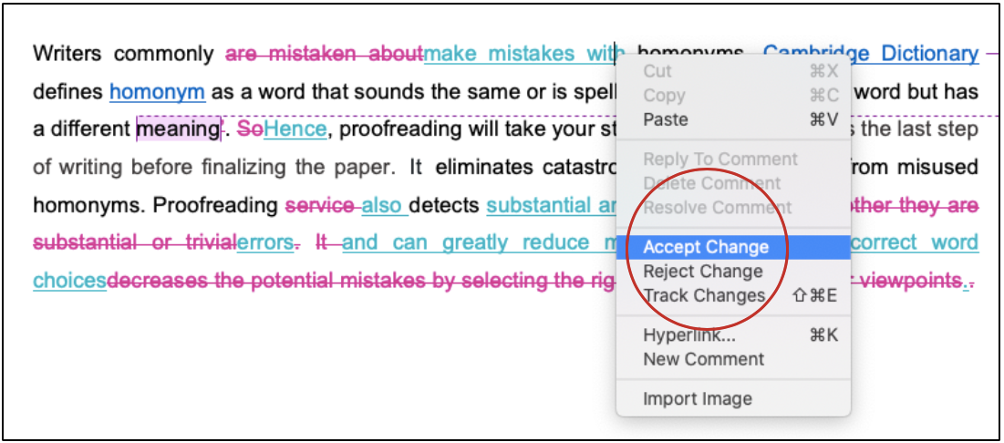Finding a dataset's middle or average is critical and involves measuring central tendency. The central tendency's most common measures include the mode, median, and mean. The mode is the most repeated measure in a data set.

Finding a dataset's middle or average is critical and involves measuring central tendency. The central tendency's most common measures include the mode, median, and mean. The mode is the most repeated measure in a data set. As the name suggests, the median is in the middle of an ordered data set, while the mean is determined by dividing the sum of all values by the number of observations. On top of the central tendency measures, the variability and distribution of a dataset should be assessed. To that end, one needs to look at how the data are distributed and which distributions are more relevant.
Suppose one has a dataset with n number of values. In that case, this data set is called a distribution. In statistics, two types of distribution exist: discrete and continuous distributions. Binomial and Poisson are examples of discrete distributions. In contrast, normal and exponential distributions are examples of continuous distributions. In discrete distributions, the random variable, x, can assume a finite number of values (all positive integers). Nonetheless, the x variable can take an infinite number of values in continuous distributions.
Normal distribution, by far, is the most famous and used distribution. In a normal distribution, data are symmetric with no apparent skewness. In other words, one can see most values around the central region. However, some values may seem comparatively moving away from the center. The most distinct property of the normal distribution is that the arithmetic mean, median, and mode are the same. One of the most famous normal distributions is the distribution of IQ scores, meaning that if you know your IQ score, you can calculate how well you are doing compared to the rest of the population. In order to decide whether the data are normally distributed, the ideal option is to draw the histogram. Then, one can decide how well the data fit the bell-shaped curve (normal distribution). A histogram shows where the frequency of responses tends to concentrate or how it spreads out substantially.
When more values are on one side of the center relative to the other side, and the mean, median, and mode are not the same, the distribution is skewed. One can easily see that one side is profoundly more spread out and has a longer tail. It suggests that fewer scores are at one end compared to the other. The tail's direction dictates the side of the skew. Lower scores prevail when the distribution is positively skewed and a spread-out tail on the right is apparent. Contrarily, higher scores are predominant, and a spread-out tail is evident on the left if the distribution a negatively skewed.
The mode is the lowest, and the mean is the highest in the positively skewed distribution, whereas the mean is the lowest, and the mode is the highest in the negatively skewed distribution.
Most researchers prefer using all these three measures of central tendency because they have specific strengths but also certain limitations. However, in particular cases, only one or two may be relevant and determinable. It all depends on what the measurement level is for the variable. Calculating mode is possible for all measurement levels, even if the variable is nominal. Nonetheless, the median is only possible for ordinal, interval, and ratio levels. The mean has the most limitation needing equal spacing; thus, it is only valid for interval or ratio levels. The mean is exceedingly sensitive to outliers. Therefore, using the median instead of the mean can be preferred if one has extreme values in a data set. For instance, the salary data in the US is generally given as median salaries because the salary is prone to extreme values.
Best Edit & Proof expert editors and proofreaders focus on offering papers with proper tone, content, and style of academic writing, and also provide an upscale editing and proofreading service for you. If you consider our pieces of advice, you will witness a notable increase in the chance for your research manuscript to be accepted by the publishers. We work together as an academic writing style guide by bestowing subject-area editing and proofreading around several categorized writing styles. With the group of our expert editors, you will always find us all set to help you identify the tone and style that your manuscript needs to get a nod from the publishers.

You can also avail of our assistance if you are looking for editors who can format your manuscript, or just check on the particular styles for the formatting task as per the guidelines provided to you, e.g., APA, MLA, or Chicago/Turabian styles. Best Edit & Proof editors and proofreaders provide all sorts of academic writing help, including editing and proofreading services, using our user-friendly website, and a streamlined ordering process.
Visit our order page if you want our subject-area editors or language experts to work on your manuscript to improve its tone and style and give it a perfect academic tone and style through proper editing and proofreading. The process of submitting a paper is very easy and quick. Click here to find out how it works.
Our pricing is based on the type of service you avail of here, be it editing or proofreading. We charge on the basis of the word count of your manuscript that you submit for editing and proofreading and the turnaround time it takes to get it done. If you want to get an instant price quote for your project, copy and paste your document or enter your word count into our pricing calculator.
Contact us to get support with academic editing and proofreading. We have a 24/7 active live chat mode to offer you direct support along with qualified editors to refine and furbish your manuscript.
Follow us on Twitter, LinkedIn, Facebook, Instagram, and Medium.
For more posts, click here.
This article explains how to determine central tendency in statistical studies. To give you an opportunity to practice proofreading, we have left a few spelling, punctuation, or grammatical errors in the text. See if you can spot them! If you spot the errors correctly, you will be entitled to a 10% discount.
How to Determine Variability in a Dataset
14.10.2023
ANOVA vs MANOVA: Which Method to Use in Dissertations?
30.01.2023
How to Specify Study Variables in Research Papers?
14.01.2023
Population vs Sample | Sampling Methods for a Dissertation
14.01.2023
How to Ensure the Quality of Academic Writing in a Thesis and Dissertation?
04.12.2022
How to Avoid Anthropomorphism in Your Dissertation?
04.11.2022
How to Write a Research Paper After Finishing a Dissertation or a Thesis
28.08.2022
How to Write a Research Methodology Section for a Dissertation and Thesis
07.08.2022

The writer is expected to be very selective with the style and approach of writing custom-made. Here in this article, the primary and essential elements to be taken under consideration while developing engaging content will be illustrated. This article discusses 9 basic principles for effective content writing.
Continue Reading
Writing an academic paper is not similar to other forms of writing. It requires patience, knowledge, and the use of proper sentence construction. An academic paper should be informative, polished, and well structured. As a student or researcher, you should learn about bad habits and not repeat them in your academic writing. In this article, we discuss 6 bad habits to avoid in academic writing.
Continue Reading
Whether it is an academic essay or any other thesis paper, all the papers are directly or indirectly associated with one’s future. Therefore, making mistakes here means compromising with the future. However, students are fond of making some habitual errors while composing an academic paper. Let’s learn those mistakes and make sure not to repeat them in your turn.
Continue Reading
Writing assignments is not like any other homework you’ve ever done or will do in your academic life. Writing assignments demands unrestrained dedication and plenty of willpower. You cannot just open a book and copy-paste its contents with some rephrasing. To write a better assignment, you need to work hard, you need to research, plan, draft, and edit carefully. Writing an assignment paper is one thing and writing an impactful assignment paper that instills a positive impression of you in your professor’s books and elicits good grades out of him/her is another one. The following tips will help you write a perfect assignment paper.
Continue Reading
Academic writing should be free of all errors and grammatical mistakes to ensure accuracy and professionalism. However, now and then, you come across an error while correcting your work that makes it all extremely difficult — dangling modifiers. What exactly are these, and how can you fix dangling modifiers so that your piece of academic work is perfect in all sense? Don’t worry, as we have the perfect guide to help you through it. In this article, we will cover how you can masterfully eliminate them.
Continue Reading
We may have qualitative, quantitative, and mixed methods in dissertations. This blog will elaborate on quantitative dissertations, qualitative dissertations, and mixed methods dissertations by addressing their similarities and differences.
Continue Reading
The first chapter of your thesis or dissertation includes the introduction. You should provide the reader with a solid start. Next is staging your research with an apparent focus, objective, and direction.
Continue Reading